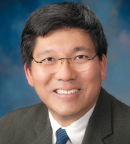The newly renamed Montefiore Einstein Comprehensive Cancer Center (MECCC) has been awarded comprehensive designation by the National Cancer Institute (NCI) of the National Institutes of Health. As a result, MECCC was awarded a 5-year, $20 million Cancer Center Support Grant to advance the translation of novel cancer research into new treatments and novel screening and diagnostic tools, as well as provide equitable access to care throughout the Bronx, Westchester County, and lower Hudson Valley regions of New York.
“We are deeply honored to be recognized for the unique and special contributions of our cancer center in the NCI’s portfolio of comprehensive cancer centers,” said Edward Chu, MD, MMS, Director of MECCC; Carol and Roger Einiger Professor of Cancer Medicine and Professor of Oncology, Medicine, and Molecular Pharmacology at Albert Einstein College of Medicine; and Vice President of Cancer Medicine at Montefiore Medicine. “This NCI designation is a testament to the remarkable strength of our exceptional science integrated with extraordinary multidisciplinary patient care.”

Edward Chu, MD, MMS
MECCC’s History
MECCC is the fourth-oldest NCI-designated cancer center, having been originally designated by the NCI in 1972. It was among the first institutions to integrate academic research and clinical care, leveraging the Albert Einstein College of Medicine’s expertise in cancer science and therapeutics as well as Montefiore Health System’s experience in providing care for more than 200 types of cancer.
MECCC is home to five members of the National Academy of Sciences and conducts novel research into the tumor microenvironment and metastasis; stem cell and cancer biology; cancer therapeutics; and cancer epidemiology, prevention, and control. More than 1,000 patients each year enroll in the cancer center’s 300 active clinical trials, many of which provide access to treatments unavailable elsewhere.
A National Model for Addressing Health Equity
From genetic variants to systemic inequities and social determinants of health, MECCC investigators strive to uncover the drivers of cancer disparities and develop interventions that result in better outcomes.
“The progress made by the cancer center over the past several years has earned it comprehensive status,” said Henry Ciolino, PhD, Director of the Office of Cancer Centers at the NCI. “And they did this serving one of the most diverse and medically challenged catchment areas of any NCI-designated cancer center.”
MECCC has built strong partnerships with community-based organizations throughout the Bronx, forging ties that bolster promotion of cancer screenings and other preventive measures specific to the borough’s needs and concerns. MECCC reviews and analyzes social determinants of health to enhance patient care and provide comprehensive support services, as well as inform health outcomes and health services research.
“We are a national model for community outreach, engagement, and cancer health equity,” said Dr. Chu. “As the diversity of our country’s population continues to grow, our understanding of cancer health disparities deepens and our principles of diversity, equity, and inclusivity are actively implemented. It is absolutely critical that we do everything within our power to ensure that all patients receive the highest quality care they need and deserve.”
MECCC is dedicated to educating and training the next generation of cancer investigators and physician-scientists through pathway programs that begin as early as high school. Initiatives such as BEYOND ALBERT, a summer afterschool program for Bronx high school students who learn in the labs of MECCC members, and the Einstein Discover Research Program, an 18-month biomedical research training program for MS candidates at the City University of New York’s Lehman College, offer unique opportunities for individuals from historically underrepresented groups in medicine and science.

